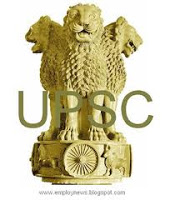Hope you all are well versed with the syllabus of Civil Service Preliminary Paper 1 Exam for 2014.
The entire syllabus is divided into seven core areas. In that, "History of India and Indian National Movement" has a weightage of around 10%. The weightage changes over the years but we can expect around 10 history based question out of the 100 questions in paper 1. The strategy for the preparation of Indian histroy for Civil Service Preliminary Paper 1 Exam for 2014 should be differrent for aspirants having background of history as a subject from others. If you have a good history subject knowledge, dig right from ancient history and master it. If you are from any other background, then I would prefer you start from our first war of independence in 1857.
Books for History of India and Indian National Movement
1. NCERT History books - 8th Standard to 12th Standard
2. India’s struggle for Independence: Bipin Chandra (If time permits)
3. Try to do as much sample questions you can.
Question Pattern of History for Civil Service Preliminary Paper 1 Exam for 2014
During the past few years the pattern of UPSC Civil Service Preliminary Paper 1 has changed drastically. Now there is no room for any direct questions. There is no point in mugging up historical dates, names etc. For example you can never expect a question like When was the first panipat war. Nowadays most of the questions are 4 Statement type. You are given one term/phenomenon/incident and 2 or 3 or 4 statements. Your task is to identify all the correct statements.
Question Pattern in 1990s and 2000s
Below given is a sample question asked in Civil Service Preliminary Paper 1 Exam for 2000
Who among the following Europeans were the last to come to pre-indendendence India as traders
a. Dutch
b. English
c. French
d. Portuguese
4 Statement type Question - Example
Below given is a sample question asked in Civil Service Preliminary Paper 1 Exam for 2012
Mahatma Gandhi undertook fast unto death in 1932, mainly because :
a.Round table conference failed to satisfy Indian political aspirations
b.Congress and muslims league had differences of opinion
c.Ramsay macdonald announced the communal award
d.None of the statements
To answer this question, you should need a clear cut idea about the reasons behind Mahatma Gandhi's decision to undertook fast unto death in 1932. Half baked knowledge will lead to wrong answers and it will ruin your chances. So the best way is to practice as much as questions you can by giving mock tests.
Mock Test for History
We are preparing a 100 question booklet for History considering the new pattern change which will be avaliable at a nominal price. Please comment your email address if you are interested.






0 comments: